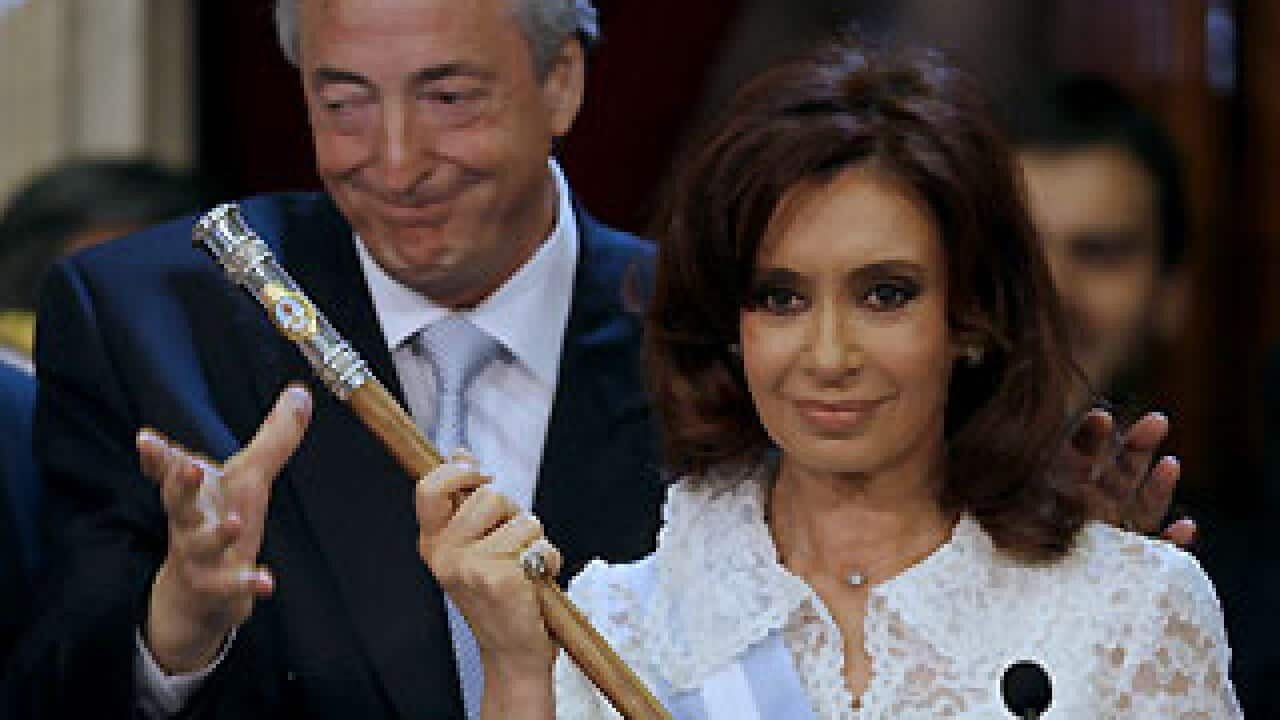Former Argentine president Nestor Kirchner, the powerful husband of current leader Cristina Kirchner, died suddenly of a heart attack Wednesday, throwing the government into uncertainty.
Kirchner embodied his country's recovery from its economic crisis and tried to establish a political dynasty by passing power between him and his wife.
While he successfully saw his spouse Cristina Kirchner installed as his successor in 2007 after one four-year term in power, his unexpected death cut short his widely expected return as a presidential candidate in 2011.
Argentina's current president and her husband met as university students in La Plata; decades later they had built an unprecedented style of co-government and rule-by-couple in a style so singular that it raised questions about presidential power in the country.
Headstrong, irritable
Nestor Kirchner, born February 25, 1950, in the southern town of Rio Gallegos, was headstrong and often irritable as president.
He was best known as a Peronist figure who led Argentina as it was emerging from its 1999-2002 economic crisis which resulted in the largest sovereign debt default in history.
During his government, Argentina saw strong growth thanks to rocketing agricultural exports, though its access to international capital markets remained crippled.
In 2005 he took steps to try to restore Argentina's credit credibility, renegotiating terms on most of the 100 billion dollars of privately held debt.
The following year, he paid off his country's outstanding US 9.5-billion-dollar debt to the International Monetary Fund, which he blamed for his nation's economic ills.
Kirchner also sought to clean up the black mark left by Argentina's 1976-1983 military dictatorship, launching criminal investigations into the thousands of people who were killed or "disappeared" during that period.
Kirchner's political experience was honed from 12 years as governor of his home province of Santa Cruz, an oil-rich region in Argentina's Patagonia region.
Growth in popularity
Though he took office as president with less than a quarter of the ballots, being elected because his rival Carlos Menem dropped his comeback bid in the runoff, Kirchner ended his mandate with a 60-percent popularity rating.
Rather than seek his own re-election, Kirchner, who amassed an 11-million-dollar fortune, threw his weight behind getting his wife elected.
He maintained a strong influence behind the scenes, though, and kept active on the political scene first as a lawmaker and then, most recently, as the secretary general of the Union of South American States (Unasur) that serves as a regional diplomatic bloc.
Detractors frequently said they believed the Kirchners planned to keep a stranglehold on power by continually passing the presidency back and forth between them.
Nestor Kirchner's political strength appeared to weaken, however, as his wife's government engaged in problematic conflicts with the powerful farmers' lobby, Argentina's media, and the Supreme Court.
His own defeat in legislative elections in June 2009 and his ruling party's loss of its majority further cast a cloud over his prospects of one day returning to the power.
Finally, recurring ill-health linked to his heart, which required two surgeries this year to clear blocked arteries, had already raised questions over how fit he was to govern again.
Nestor Kirchner, whose father was a postal worker of Swiss descent and whose mother hailed from Chile, is survived by his wife and current president Cristina, 57, and their two children, Maximo, 32, and Florencia, 19.

